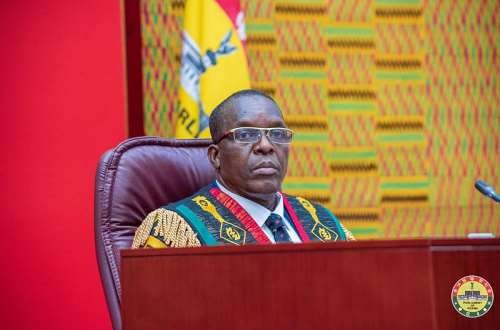Abstract In a democratic society, members are conceived as equals. The status of equality arises from the assumption that those who create a just society do so as equal rational beings demanding equal respect, equal economic claims, equal opportunity, and tolerance in that society. Legislators are confronted with enigmatic practical difficulties when navigating the world...
Category: Constitutional Law
Passing Law Without Touching the State’s Pocket: An Interpretive Answer To Article 108(a)ii & iii
Abstract The powers of government to legislate, adjudicate, or implement laws are shared among the arms of government—Parliament, the Judiciary, and the Executive. These powers are either exclusively exercised by one arm of government or jointly with the others. Since 2019, the Parliament of Ghana has set out an internal procedure for members of parliament...
When What Matters Not, Matter! – A Review of the Law on Privacy and Admissibility of Evidence Secretly and Unlawfully Obtained, In Civil Proceedings, Vis-à-Vis Article 18(2) of the 1992 Constitution of Ghana
“It matters not how you get it, if you steal it even, it would be admissible in evidence” Crompton J in R v Leatham (1861) 8 Cox CC 498. Introduction The secret tape of Chief Bugri Naabu,[1] (‘the IGP Konkonsa tape’) with some senior police officers in the Ghana Police Service, relative to the Inspector...
America’s Gun Pandemic: How “Originalists” Failed The Republic
Last Monday, August 28, 2023, there was yet another incident of gun violence in the US. This time, a faculty member at the University of North Carolina at Chapel Hill was shot dead on campus. A graduate student has been charged for the murder. This is yet another reminder of how unregulated guns continue to...
What Constitutes “Reasonable Time Or Unreasonable Delay” In Criminal Trials? The Case of Article 14(4) of the 1992 Constitution
Author: Ernest Kyere Introduction The skinny, malnourished-looking Kofi Boakye walked into the courtroom. His face grimaced as he felt all the stares on him. With dilated eyes, he scanned the courtroom, hoping to see a familiar face. However, he soon realized that the years he had spent in pre-trial detention had turned him into a...
The Attorney-General’s Unsolicited Advice To The Auditor-General: Why The Attorney-General Gets It Wrong
The Attorney-General (the “AG”), Godfred Dame, has taken issue with the publication of a special audit report on the government of Ghana’s COVID-19 expenditures covering the period March 2020 to June 2022 by the Auditor-General. In a letter dated February 8, 2023, addressed to Auditor-General, Johnson Akuamoah Asiedu, the AG argued that the publication of...
Rahim Baba Salifa: The Boy Caught Between Ghana-Guinea Tensions
[Dedication: This piece is dedicated to a dear friend and law school mate, Richard Badombie Esq whose tragic passing at the hands of some armed persons has left us in shock. He would be sorely missed for his public spiritedness and warm personality] The early days of law school was difficult. It required getting used...
Rethinking Article 68(5) of the 1992 Constitution – Taxation of the Emoluments of the President of the Republic of Ghana – An Introspection
Introduction. The President of Ghana is, under the law[1], the first gentleman of the land and he takes precedence over all other persons in Ghana.[2] He is given that recognition and the position is given a Constitutional blessing. He is indeed the Head of the State of Ghana and the Commander-in-Chief of the Ghana Armed...
Matters Arising Out of the Abdulai Court: Presiding Members can Wear two Hats
Article 110(1) of the Constitution provides that “subject to the provisions of this Constitution, Parliament may, by standing orders, regulate its own procedure.” Article 101 provides that “the Speaker shall preside in Parliament at all sittings and in his absence a Deputy Speaker shall preside.” The person presiding at these sittings wield enormous powers. He...
Joinder of a Juristic Entity in an Article 64 Petition: A Slippery Slope in Civil Procedure Practice in Ghana
Introduction It is fundamental in litigation that parties must commence action against relevant parties to the suit. A plaintiff who conceives that he has a cause of action against a defendant is entitled to pursue his remedy against that defendant and cannot be compelled to proceed against other persons whom he has no desire to...









